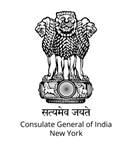
General comments by India on Consideration of the draft resolution A/HRC/41/L.5
(11-12 July 2019) “Accelerating efforts to eliminate all forms of violence against women and girls: Preventing and responding to violence against women and girls in the world of work” in the 41st Session of the Human Rights Council (24 June – 12 July 2019) delivered by Mr. Rajiv K. Chander, Permanent Representative of India/Ambassador, Permanent Mission of India, (Geneva, 12 July 2019)
Mr. President,
India is committed to combat all forms of violence directed against women and girls at any place and under any circumstances. Amendment of Indian criminal law to broaden the scope of sexual assault and harassment, enactment of the Sexual Harassment of Women at Work Place Act and the Draft National Policy for Women are some of the strong domestic measures that India has taken to holistically address all forms of violence against women.
2. While fully supporting the objective of the draft resolution under current consideration, we believe that inclusion of any reference to domestic violence linking to the world of work is out of the context. By doing so, domestic violence will be set as a parameter for addressing violence in the world of work and will be linked as a criterion of decent work and employment which may create restrictions on trade indirectly. The world of work and domestic violence are not to be correlated as there is a separate national legislation and associated redressal mechanism in India.
3. It may be noted that there are no policies and initiatives in place in India to promote the reconciliation and sharing of work between men and women as referred in PP26. On PP31, it is not clear as to the relevance of 'domestic violence' in this Resolution which deals with preventing and responding to violence against women and girls in the work place. OP3 of the draft resolution states that domestic violence is not a private family matter and must be eliminated. It may be noted that India has enacted the Protection of Women from Domestic Violence Act 2005 to provide effective protection of the rights of women guaranteed under the Constitution who are victims of violence of any kind occurring within the family. However, we do not see the relevance of OP3 in the draft Resolution as it is targeting to eliminate violence against women and girls in the world of work. In view of all the above reasons, India will dissociate itself from PP26, PP31 and OP3 from the draft resolution while supporting its adoption by consensus.
I thank you, Mr. President.
******












